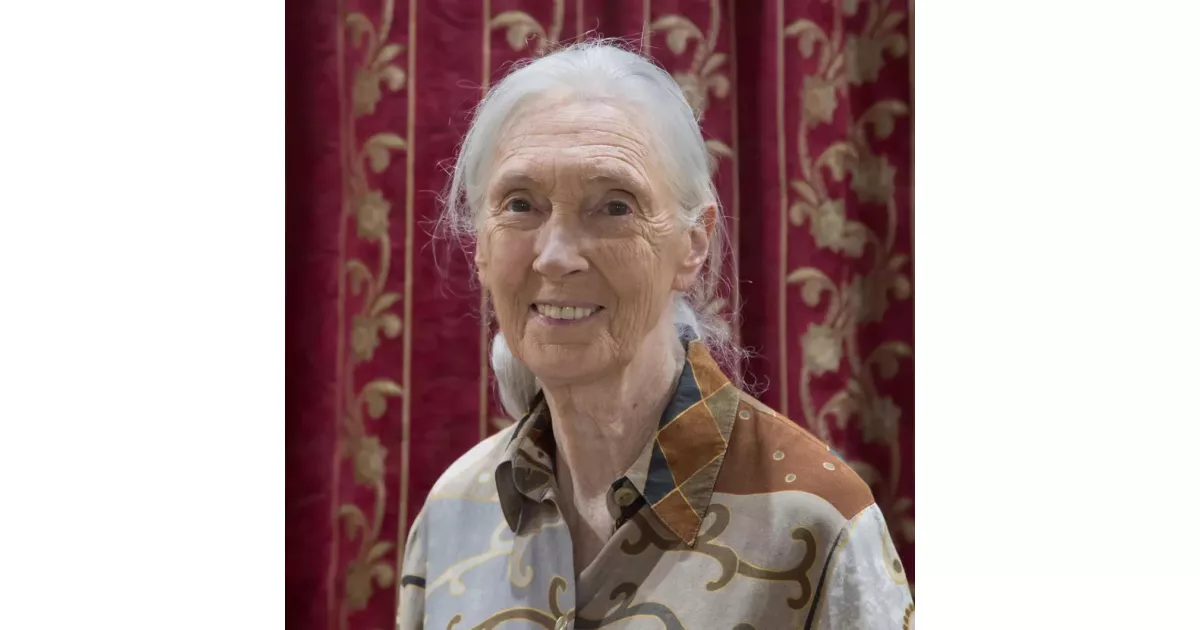Discover the defining moments in the early life of Jane Goodall. From birth to education, explore key events.
Jane Goodall is a renowned English primatologist, zoologist, and anthropologist, considered the world's leading expert on chimpanzees. Beginning her research in 1960 at Gombe Stream National Park in Tanzania, she has dedicated over 60 years to studying the social and family lives of wild chimpanzees. Her groundbreaking work revolutionized our understanding of these primates, demonstrating their complex behaviors and intelligence. Goodall is also a dedicated conservationist and advocate for animal welfare, working to protect chimpanzees and their habitats through the Jane Goodall Institute and her Roots & Shoots program.
1906: Margaret Myfanwe Joseph's birth
In 1906, Margaret Myfanwe Joseph, Jane Goodall's mother, was born. She was a novelist who wrote under the name Vanne Morris-Goodall.
1907: Mortimer Herbert Morris-Goodall's birth
In 1907, Mortimer Herbert Morris-Goodall, the father of Jane Goodall, was born. He was a businessman.
April 1934: Valerie Jane Morris-Goodall's birth
In April 1934, Valerie Jane Morris-Goodall was born in Hampstead, London, to Mortimer Herbert Morris-Goodall and Margaret Myfanwe Joseph, who wrote novels under the name Vanne Morris-Goodall.
April 1934: Birth of Jane Morris Goodall
In April 1934, Valerie Jane Morris-Goodall, later known as Dame Jane Goodall, was born. She later became a primatologist and anthropologist known for her extensive research on chimpanzees.
1958: Leakey sends Goodall to London for primate studies
In 1958, Louis Leakey arranged for Jane Goodall to study primate behavior with Osman Hill and primate anatomy with John Napier in London, preparing her for her future research.
July 1960: Goodall goes to Gombe Stream National Park with her mother
On 14 July 1960, Jane Goodall, accompanied by her mother, went to Gombe Stream National Park to study chimpanzees, becoming the first of The Trimates.
1960: Goodall goes to Gombe Stream National Park
In 1960, Jane Goodall first went to Gombe Stream National Park in Tanzania to observe chimpanzees in their natural habitat, marking the beginning of her extensive research.
1962: Goodall attends University of Cambridge
In 1962, Louis Leakey arranged funding for Jane Goodall to attend the University of Cambridge to pursue a PhD without having a prior bachelor's degree.
March 1964: Married Baron Hugo van Lawick
On March 28, 1964, Jane Goodall married Dutch nobleman and wildlife photographer Baron Hugo van Lawick in London, becoming known as Baroness Jane van Lawick-Goodall during their marriage.
1964: Goodall receives Bachelor of Arts degree
By 1964, Jane Goodall received her Bachelor of Arts degree in natural sciences from Newnham College, Cambridge.
1966: Goodall completes PhD thesis
In 1966, Jane Goodall completed her PhD thesis on the Behaviour of free-living chimpanzees, detailing her first five years of study at the Gombe Reserve.
1974: Divorced Baron Hugo van Lawick
In 1974, Jane Goodall divorced Baron Hugo van Lawick, with whom she had a son.
1974: Start of Gombe Chimpanzee War
In 1974, the Gombe Chimpanzee War began, lasting until 1978. Jane Goodall later described this period in her memoir.
1977: Mystical experience at Notre Dame Cathedral
In 1977, Jane Goodall had a mystical experience at Notre Dame Cathedral, which she later described in her 1999 book, Reason for Hope: A Spiritual Journey. This experience led her to believe in a guiding power in the universe, or God.
1978: End of Gombe Chimpanzee War
In 1978, the Gombe Chimpanzee War ended. Jane Goodall later wrote about it in her 1990 memoir, "Through a Window".
1987: The Far Side Cartoon Controversy
In 1987, Gary Larson published a 'Far Side' cartoon that referenced Jane Goodall. The Jane Goodall Institute initially deemed the cartoon an "atrocity," but Goodall herself later found it amusing and named it her favourite depiction of herself in pop culture.
1988: Gary Larson visited Goodall's research facility
In 1988, Gary Larson, the creator of The Far Side, visited Jane Goodall's research facility in Tanzania, where he was attacked by a chimpanzee named Frodo.
1990: Publication of memoir, Through a Window
In 1990, Jane Goodall described the 1974-1978 Gombe Chimpanzee War in her memoir, "Through a Window: My Thirty Years with the Chimpanzees of Gombe", publishing her findings revolutionised contemporary knowledge of chimpanzee behaviour.
1999: Published 'Reason for Hope: A Spiritual Journey'
In her 1999 book 'Reason for Hope: A Spiritual Journey', Jane Goodall described a mystical experience she had in 1977 and shared her belief in a guiding power in the universe.
April 2002: Appointed UN Messenger of Peace
In April 2002, Jane Goodall was named a United Nations Messenger of Peace by Secretary-General Kofi Annan.
2004: Hunting Act 2004
In 2015, Jane Goodall signed a letter to Members of Parliament opposing the Conservative prime minister David Cameron's plan to amend the Hunting Act 2004. She opposed fox hunting.
September 2010: Expressed Belief in a Great Spiritual Power
In September 2010, Jane Goodall stated that she believed in a great spiritual power, particularly feeling it in nature, and saw no contradiction between evolution and belief in God, while also saying she was raised as a Christian. This was in an interview with The Guardian.
2010: Benefit Concert at DAR Constitution Hall
In 2010, Dave Matthews and Tim Reynolds held a benefit concert at DAR Constitution Hall in Washington, D.C., to commemorate "Gombe 50: a global celebration of Jane Goodall's pioneering chimpanzee research and inspiring vision for our future".
2012: Expressed fascination with the possibility of undiscovered primates
In 2012, during an interview with the Huffington Post, Jane Goodall expressed her fascination and desire for the existence of undiscovered primate species, including cryptids like Sasquatch and Bigfoot, while acknowledging the lack of concrete evidence.
2015: Endorsed Caroline Lucas
Prior to the 2015 UK general election, Jane Goodall endorsed the parliamentary candidacy of the Green Party's Caroline Lucas.
2017: Wrote foreword for 'The Intelligence of the Cosmos'
In 2017, Jane Goodall wrote the foreword to 'The Intelligence of the Cosmos' by Ervin Laszlo, where she expressed her belief in an Intelligence driving evolution and a Supreme Being.
2019: Voiced herself on "Gorillas on the Mast"
In 2019, Jane Goodall voiced herself on The Simpsons episode "Gorillas on the Mast".
October 2021: Joined Rewriting Extinction campaign
In October 2021, Jane Goodall joined the Rewriting Extinction campaign to fight climate and biodiversity crisis through comics. She contributed to "The Most Important Comic Book on Earth: Stories to Save the World", released on October 28, 2021, by DK.
December 2021: Guest Editor of BBC Radio Four Today Programme
On December 31, 2021, Jane Goodall was the guest editor of the BBC Radio Four Today programme. She chose Francis Collins to be the presenter of Thought for the Day.
2021: Goodall becomes vegan and authors a cookbook
In 2021, Jane Goodall became a vegan and authored a cookbook titled "Eat Meat Less", advocating for ethical eating habits.
2021: Called on EU Commission to abolish caging of farm animals
In 2021, Jane Goodall called on the EU Commission to abolish the caging of farm animals.
March 2022: Lego tribute to Jane Goodall
On March 3, 2022, the Lego Group issued set number 40530, A Jane Goodall Tribute, depicting a Jane Goodall minifigure and three chimpanzees in an African forest scene, in celebration of Women's History Month and International Women's Day.
2022: Mattel released Barbie-themed Goodall doll
In 2022, Mattel released a Barbie-themed Jane Goodall doll made from recycled plastic, dressed in field attire with binoculars and a notebook, in recognition of her conservation work and achievements.
October 2024: Gave "A Speech for History" at UNESCO
In October 2024, Jane Goodall gave "A Speech for History" at UNESCO, delivering an optimistic message on conservation and the role everyone can play by educating youth and communities to protect the natural world.
October 2025: Death of Jane Goodall
In October 2025, Jane Goodall passed away. During her lifetime, she was a prominent primatologist and anthropologist.
2025: Goodall's death
In 2025, Jane Goodall passed away, leaving behind a legacy of extensive work in primatology, conservation, and animal welfare.
Mentioned in this timeline
Lego is a line of plastic construction toys created by...
Africa is the second-largest and second-most populous continent home to...
Tanzania officially the United Republic of Tanzania is an East...
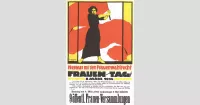
International Women's Day IWD observed annually on March th commemorates...
Kenya officially the Republic of Kenya is an East African...
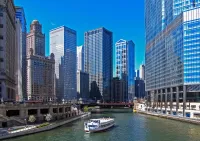
Chicago is the most populous city in Illinois and the...
Trending

34 minutes ago Kyshawn George's Injury Update: Cleared to Play After Toe Issue
4 months ago Trump defends Tucker Carlson's Nick Fuentes interview amid antisemitism concerns.
34 minutes ago Fire at US embassy in Riyadh after drone strike amid Iran-US tensions.
35 minutes ago Julian Reese's Two-Way Contract: Angel Reese's Inspiring Message and Wizards' New Addition
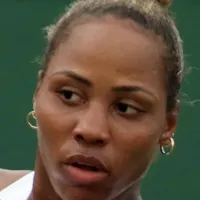
2 hours ago Peyton Stearns, Texas Longhorn, triumphs at ATX Open, securing second WTA title.
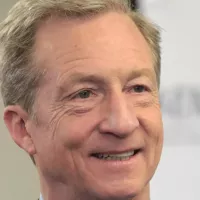
3 hours ago Tom Steyer's California plan faces criticism while he spends millions on governor's race.
Popular

Jesse Jackson is an American civil rights activist politician and...

Hillary Diane Rodham Clinton is a prominent American politician lawyer...

Jim Carrey is a Canadian-American actor and comedian celebrated for...

XXXTentacion born Jahseh Dwayne Ricardo Onfroy was a controversial yet...

Kashyap Pramod Patel is an American lawyer who became the...

Barack Obama the th U S President - was the...
